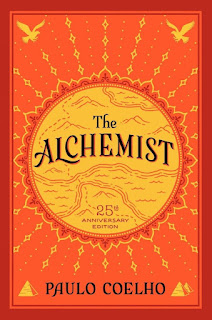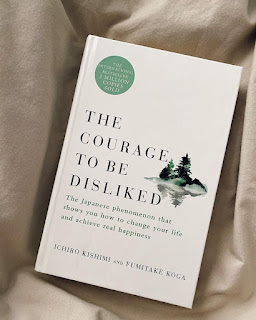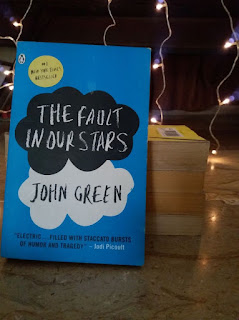Lost islamic history by mehak siddiquei book summary - Readershub
Lost Islamic history book summary
If one made a Prezi demonstration, the way that gives a good spatial overview of the demonstration and then uses energy to zoom into a particular part, of the timeline of major eras in the history of Muslim culture you would get something that browses like the book the Lost Islamic History: Reclaiming Muslim Civilisation from the Past by Firas Alkhateeb. The book oversees the reader through the history of Islam's advent from its heritage up to the present day, through a brief and easy-to-read text. Alkhateeb begins with a geopolitical description of Arabia before the prophethood of Prophet Muhammad in 610 CE, which helps clarify why the statement of Islam was able to gain a foothold at a time when the Roman and Persian Empires were affecting the world. The major events in the life of Prophet Muhammad which impacted the extent of his message are narrated. Including the opposition and persecution that early Muslims had to face, the migration to Medina where the first Muslim state was set up, and the subsequent wars which ultimately led to the spread of Islam in Arabia.
The following chapters summarize the time of the first four caliphs after the demise of Prophet Muhammad and the rise of the Umayyad and Abbasid Caliphates. What follows next is the tale of the stunning period of the Muslims’ past, an era of academic progress with great advances in science, arts, medicine, theology, and Islamic jurisprudence at a time when the rest of the world existed still in the dusk.
“Ibn al-Haytham’s scientific achievements can fill volumes on their own, and indeed they did. He reportedly wrote over 200 books, but no more than a few dozen survive today.”
In the article on Islam, next, the collection can spot a structure of increasing and falling of different monarchies as we learn about the loss inflicted by the Crusaders and the Mongols, the rise of Al-Andalus in present-day Spain their fall at the hands of the Catholics from the North and the rise of the Ottomans and their eventual fall after World War II. What is particularly interesting is the conversation about the existence of Islam on the fringe i.e. in Western and Eastern Africa, China, and to America through the slave trade. It is in this discussion that one sees how the author is restoring Muslim history that is often neglected or forgotten; Islam’s presence in the far corners of the world rarely makes it into mainstream history textbooks and speeches.
In the end, we learn about the origin of the nation-states that the nation is divide into today and how since the end of colonialism Muslims around the world are grasping with the importance of and the place that Islam clenches in their lives. Firas Alkhateeb is an academic and that is apparent with how the book reads like a history reader would, yet that does not make the book a slog to get through. It is surprisingly fast-paced even though you might find yourself hoping for more details at some parts of the book.
The extent of information that this book provides about important and prominent Muslim scholars from the past is admirable but even more so for those temperaments who have been left behind in the past and are not as well known. Similarly, the chapter ‘The Edge’ is so stimulating to read and makes the reader pleasantly shocked by their limited knowledge of the presence of Islam in lands far and wide such as in Mali and China in the 1300 and 1400s.
The author raises questions that a typical person who practices a religion might find himself believing about in the present day. The questions about the destiny of Islam amid the present-day debates over secularism and patriotism are not only relevant to Islam but all faiths. Anthologies who enjoy the genre of history books should give this book a ad and so should those interested in learning about the place of Islam in current geopolitics. It is a succinct and short read. The one thing that could make browsing this book easier to follow for those with limited proficiency of history would be to include a timeline of the rulers in power over time and the regions they ruled.
Also, Read; Best life quotes
Lost Islamic history book quotes
"The smallpox vaccination was developed in the Ottoman Empire. The vaccine subsequently made its way to England through the wife of an English ambassador who observed the practice in Istanbul."
"In 1908, Abdulhamid II established an Islamic university in Beijing, China, to serve China's Hui Muslims."
"Rapid expansion coupled with social stability is proof of Umar's incredible capabilities as a leader"
"Basic trigonometric properties put forth by Muslim mathematicians serve as the basis for how GPS systems work today"
"The world's oldest university, University of Karaouin, was established by a Muslim woman in Fez, Morocco in 859"
"Like the pioneering Muslim scientists, Al Bukhari insisted on an empirical, organized method in the science of fiqh and hadith"
"Urdu, a language common among India's Muslims, exhibits Arabic, Persian, Turkic, and Indian influences. Its name derives from the Turkic word "ordu", meaning army since it was at the Turkic army camps that these four languages intermingled."
"As part of his administrative reforms, Suleiman lowered taxes on peasants in his Empire. This led to the immigration of Christian peasants who left the rest of Europe to live and work in the Ottoman Empire."
Also read: It ends with our book quotes











Comments
Post a Comment